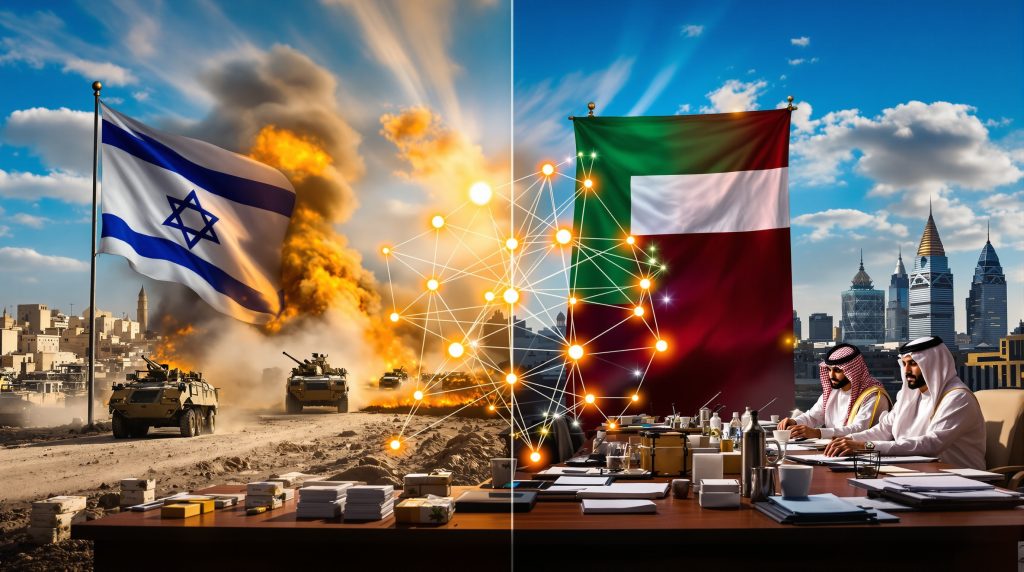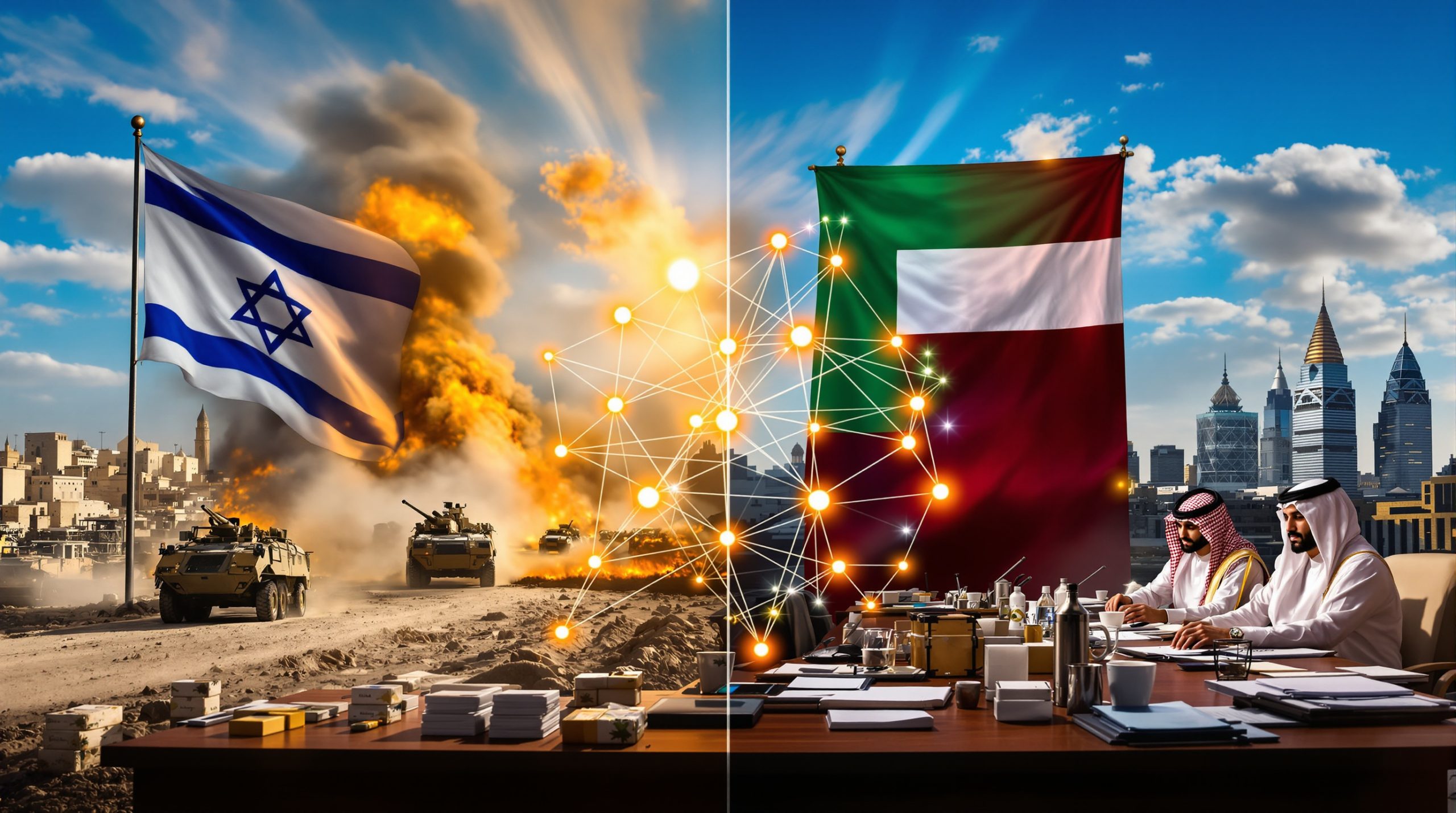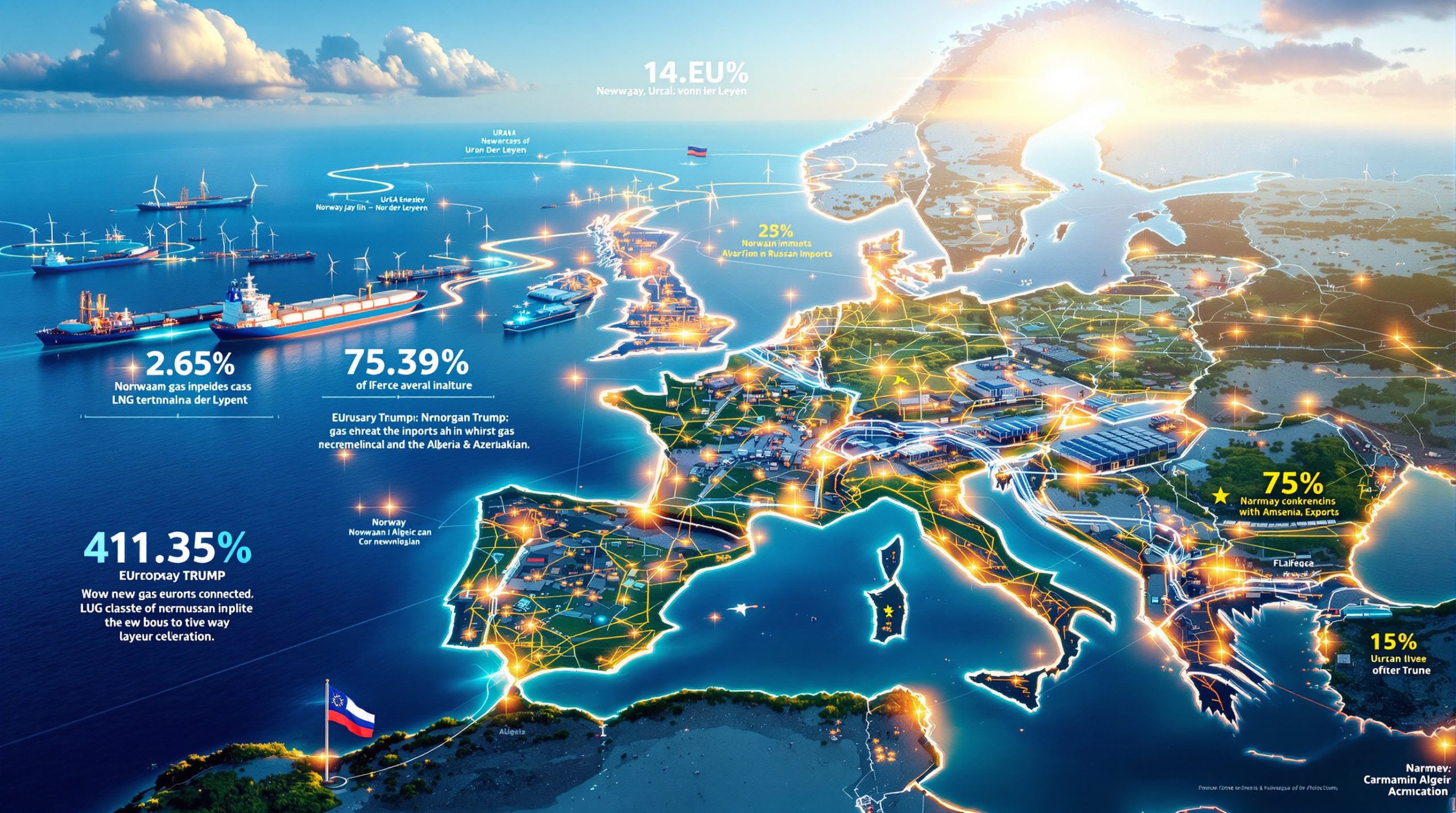The Strategic Reshaping of Middle East Alliances
Israel's Gaza City offensive launched in August 2025 has created significant ripple effects throughout the Middle East, particularly testing the delicate diplomatic balance with Gulf states. This military campaign, which includes a fresh reservist call-up and intensified strikes on Gaza City's outskirts, has forced regional powers to recalibrate their relationships with Israel while managing domestic and pan-Arab sentiments. The crisis is increasingly influencing the emerging multipolar global economy as regional alignments shift.
What Triggered the Current Gaza City Offensive?
Israel's military operation to seize control of Gaza City represents a significant escalation in the ongoing conflict. The offensive began with preliminary operations in August 2025, with plans for a main offensive in mid-September. This military push comes amid deteriorating humanitarian conditions and follows months of sporadic violence in the region.
The offensive includes:
- Deployment of additional reservists
- Heavy strikes on Gaza City's periphery
- Statements from Israeli officials about establishing control over urban centers
- Intensified blockade of humanitarian corridors
How Are Gulf States Responding to the Gaza Offensive?
Saudi Arabia's Calculated Diplomatic Approach
Saudi Arabia has adopted a nuanced position that balances its emerging relationship with Israel against its traditional role as a leader in the Arab and Islamic world. The Kingdom's response to the Gaza offensive reveals several key elements:
- Normalization Timeline Adjustments: Riyadh has slowed the pace of normalization talks with Israel, particularly when casualty figures rise or when operations appear to take on characteristics of permanent occupation.
- Public Messaging: Saudi officials have issued statements placing "full responsibility" on Israel for the humanitarian situation, language that provides diplomatic flexibility.
- Regional Leadership: The Kingdom has leveraged its position to convene Arab and Islamic forums discussing the Gaza situation, reinforcing its role as a regional power broker.
Saudi Arabia's approach demonstrates a transactional view of its relationship with Israel – cooperation continues but remains conditional on Israeli restraint in Gaza. The Kingdom has also been closely monitoring potential Trump tariff implications on regional trade dynamics.
UAE's Working-Level Response Mechanisms
The United Arab Emirates, which normalized relations with Israel through the Abraham Accords, has developed specific mechanisms to signal displeasure with Israeli military operations:
- Administrative Friction: When Israeli operations intensify, Emirati ministries introduce subtle delays in permit processing, compliance reviews, and joint initiatives.
- High-Profile Event Management: The UAE postpones or downscales joint public events during periods of intense fighting.
- Financial Scrutiny: Increased compliance and regulatory reviews of Israel-connected transactions serve as another pressure point.
Despite these pressure tactics, the UAE has maintained the fundamental architecture of its relationship with Israel, avoiding any permanent rupture while signaling boundaries.
Qatar's Unique Mediator Position
Qatar maintains a distinct position among Gulf states due to its long-standing relationship with Hamas and its role as a regional mediator:
- Active Mediation: Qatari diplomats continue to facilitate negotiations between Israel, Hamas, and other actors to secure humanitarian pauses and potential ceasefires.
- Humanitarian Financing: Qatar has increased funding for Gaza relief efforts while coordinating aid delivery mechanisms.
- Media Influence: Through Al Jazeera and other platforms, Qatar shapes regional narratives about the conflict, often highlighting humanitarian impacts.
Qatar's approach differs from other Gulf states in its direct engagement with Hamas, positioning itself as an essential intermediary despite criticism from some regional actors. This complex mediation is taking place against the backdrop of ongoing US–China trade war insights that are affecting global diplomatic alignments.
What Are the "Red Lines" for Gulf-Israel Relations?
The concept of "red lines" has emerged as a framework for understanding the limits of Gulf tolerance for Israeli military operations. These boundaries are rarely explicitly stated but become evident through diplomatic signals and policy adjustments.
Humanitarian Thresholds and Public Opinion Management
Gulf states face significant domestic and regional pressure when Palestinian civilian casualties mount. Key thresholds include:
- Casualty Metrics: When civilian death tolls reach certain levels, Gulf states typically increase their public criticism of Israel.
- Media Coverage Intensity: Extended periods of graphic coverage on regional networks force more assertive diplomatic positions.
- Religious Site Concerns: Operations affecting Islamic holy sites in Jerusalem trigger particularly strong responses.
A table of humanitarian indicators and corresponding Gulf responses:
| Humanitarian Indicator | Typical Gulf Response |
|---|---|
| Rising civilian casualties | Increased public criticism; humanitarian aid announcements |
| Hospital/school damage | Calls for international investigation; UN engagement |
| Religious site impacts | Convening of OIC emergency sessions; severe diplomatic protests |
| Extended siege conditions | Acceleration of aid delivery efforts; pressure on international bodies |
Occupation vs. Operation: The Critical Distinction
Gulf states draw important distinctions between what they view as legitimate security operations versus permanent occupation:
- Temporary vs. Permanent: Operations presented as limited in duration receive more tolerance than those suggesting permanent control.
- Governance Implications: Israeli moves to establish civil administration structures in Gaza face stronger opposition than purely military actions.
- Post-Conflict Planning: Gulf states insist on credible pathways for Palestinian governance following military operations.
Economic and Strategic Interest Balancing
The response of Gulf states is also shaped by broader economic and strategic considerations:
- US Relationship Management: Gulf states calibrate their Israel positions partly based on maintaining positive relations with Washington.
- Iran Containment Strategy: Shared concerns about Iranian influence create common ground with Israel despite Gaza tensions.
- Economic Opportunity Costs: The potential benefits of normalization (technology transfer, investment, security cooperation) are weighed against the political costs of appearing supportive during Gaza operations.
How Has the Conflict Affected Normalization Efforts?
The Gaza offensive has significantly impacted the normalization trajectory between Israel and various Gulf states, though not uniformly. Energy market considerations, including recent OPEC production impact decisions, have added another layer of complexity to these relationships.
Saudi Arabia: Normalization Pace Adjustments
The Kingdom's approach to normalization has shown clear sensitivity to developments in Gaza:
- Public Process Suspension: High-profile normalization steps have been temporarily shelved during periods of intense fighting.
- Behind-the-Scenes Continuity: Despite public pauses, working-level discussions on security and economic matters continue discretely.
- Conditional Framing: Saudi officials increasingly frame normalization as contingent on progress toward Palestinian statehood.
UAE: Relationship Maintenance with Boundaries
The UAE has developed a sophisticated approach to maintaining its Israel relationship while signaling disapproval:
- Sectoral Differentiation: Cooperation continues in less visible sectors (technology, intelligence) while public-facing initiatives slow down.
- Diplomatic Signaling: The UAE uses its position on the UN Security Council to express concerns about Gaza while maintaining bilateral channels.
- Business Community Management: Emirati officials guide private sector engagement with Israel, encouraging temporary restraint during sensitive periods.
Concrete Indicators of Relationship Temperature
Several practical indicators reveal the current state of Gulf-Israel relations:
- Ministerial Visit Frequency: The number and level of official visits decline during offensive operations.
- Joint Statement Language: The tone and content of bilateral communications shift toward emphasizing Palestinian rights during crises.
- Trade Volume Fluctuations: While formal trade continues, new deals and announcements typically slow during periods of conflict.
- Cultural Exchange Postponements: Educational and cultural programs face delays or reduced publicity during military operations.
What Are the Regional Implications Beyond the Gulf?
The Gaza offensive has implications that extend beyond bilateral Gulf-Israel relations, affecting broader regional dynamics. During times of heightened conflict, many investors turn to gold safe-haven insights for protecting assets amid geopolitical uncertainty.
Iran's Strategic Positioning and Response
Iran has sought to capitalize on the Gaza situation to strengthen its "resistance axis" and challenge Gulf-Israel normalization:
- Proxy Activation: Iranian-backed groups across the region have increased operations in solidarity with Gaza.
- Diplomatic Messaging: Tehran has intensified criticism of Gulf states pursuing normalization, framing them as betraying the Palestinian cause.
- Strategic Opportunity: Iran views the Gaza crisis as an opportunity to disrupt emerging regional alignments against its interests.
Egypt's Critical Role in Gaza's Future
Egypt maintains a pivotal position given its border with Gaza and historical role in Palestinian affairs:
- Border Management: Egyptian control of the Rafah crossing gives it significant influence over humanitarian access.
- Ceasefire Mediation: Cairo continues to work alongside Qatar in facilitating ceasefire discussions.
- Post-Conflict Governance: Egyptian security interests favor specific approaches to Gaza's future governance, sometimes creating tension with Gulf preferences.
According to recent analysis from the Middle East Institute, Egypt's historical role gives it unique leverage in any post-conflict scenarios for Gaza.
Turkey's Competing Influence Strategy
Turkey has positioned itself as a vocal critic of Israel's Gaza operations while maintaining its own strategic relationships:
- Public Diplomacy Contest: Turkish leaders compete with Gulf states in expressing support for Palestinians.
- Humanitarian Initiatives: Turkey has launched high-profile aid efforts that sometimes parallel Gulf initiatives.
- Regional Leverage: The Gaza situation provides Turkey opportunities to assert influence in Arab affairs, sometimes challenging Gulf leadership.
What Does the Future Hold for Gulf-Israel Relations?
The trajectory of Gulf-Israel relations will depend on several key factors as the Gaza offensive unfolds. As Arab Center DC notes in their comprehensive analysis, GCC states' positions on Gaza reflect a complex mix of regional interests, domestic pressures, and strategic calculations.
Short-Term Scenario Projections
Three potential scenarios could emerge in the coming months:
-
Tactical Adjustment: Israel moderates its Gaza operations in response to Gulf and international pressure, allowing normalization to resume its previous pace.
-
Extended Friction: The offensive continues with high civilian impact, forcing Gulf states to maintain public distance from Israel while preserving core security cooperation.
-
Strategic Recalibration: Prolonged fighting triggers a fundamental reassessment of Gulf-Israel relations, potentially delaying Saudi normalization for years.
Long-Term Strategic Considerations
Beyond immediate crisis management, several factors will shape the long-term relationship:
- Post-Gaza Governance Plan: The nature of Gaza's governance after the offensive will significantly influence Gulf willingness to reengage with normalization.
- Palestinian Statehood Progress: Meaningful steps toward a two-state solution would provide Gulf states political cover for normalization.
- Regional Security Architecture: Emerging threats could reinforce the strategic logic of Gulf-Israel cooperation despite public tensions.
Economic and Energy Sector Implications
The energy sector provides both constraints and opportunities in Gulf-Israel relations:
- Energy Market Stability: Shared interest in stable energy markets creates incentives for de-escalation and pragmatic cooperation.
- Technology Transfer Opportunities: Israel's water, agricultural, and security technologies remain attractive to Gulf states facing climate and security challenges.
- Investment Flow Resilience: Despite political tensions, financial ties have shown remarkable resilience, with investments often continuing through third-party structures.
Conclusion: Balancing Pragmatism and Principles
The Gaza City offensive has revealed the complex balancing act Gulf states must perform between strategic interests and political principles. Their approach to Israel combines transactional pragmatism with clear boundaries, allowing cooperation to continue while signaling that such cooperation is neither unconditional nor unlimited.
As the offensive unfolds, watch for these key indicators of Gulf-Israel relationship health:
- Whether Saudi officials permit any normalization progress during intense military operations
- The extent to which Emirati ministries maintain routine engagement with Israeli counterparts
- The language used in official statements attributing responsibility for humanitarian conditions
- The visibility and frequency of joint initiatives in less controversial sectors like climate technology
The Gaza offensive demonstrates that while Gulf-Israel normalization may be resilient, it remains sensitive to developments on the ground and subject to both strategic calculation and genuine concern for Palestinian welfare.
Further Exploration:
Readers interested in learning more about the geopolitical dynamics of the Middle East can also explore related educational content on the complex relationships between regional powers in the context of the Gaza City offensive and Gulf states relations.
Want to Be Alerted to the Next Market-Moving Mineral Discovery?
Discovery Alert's proprietary Discovery IQ model delivers instant notifications of significant ASX mineral discoveries, transforming complex data into actionable investment insights. Discover why major mineral findings can lead to substantial market returns by exploring our dedicated discoveries page and position yourself ahead of the market.




